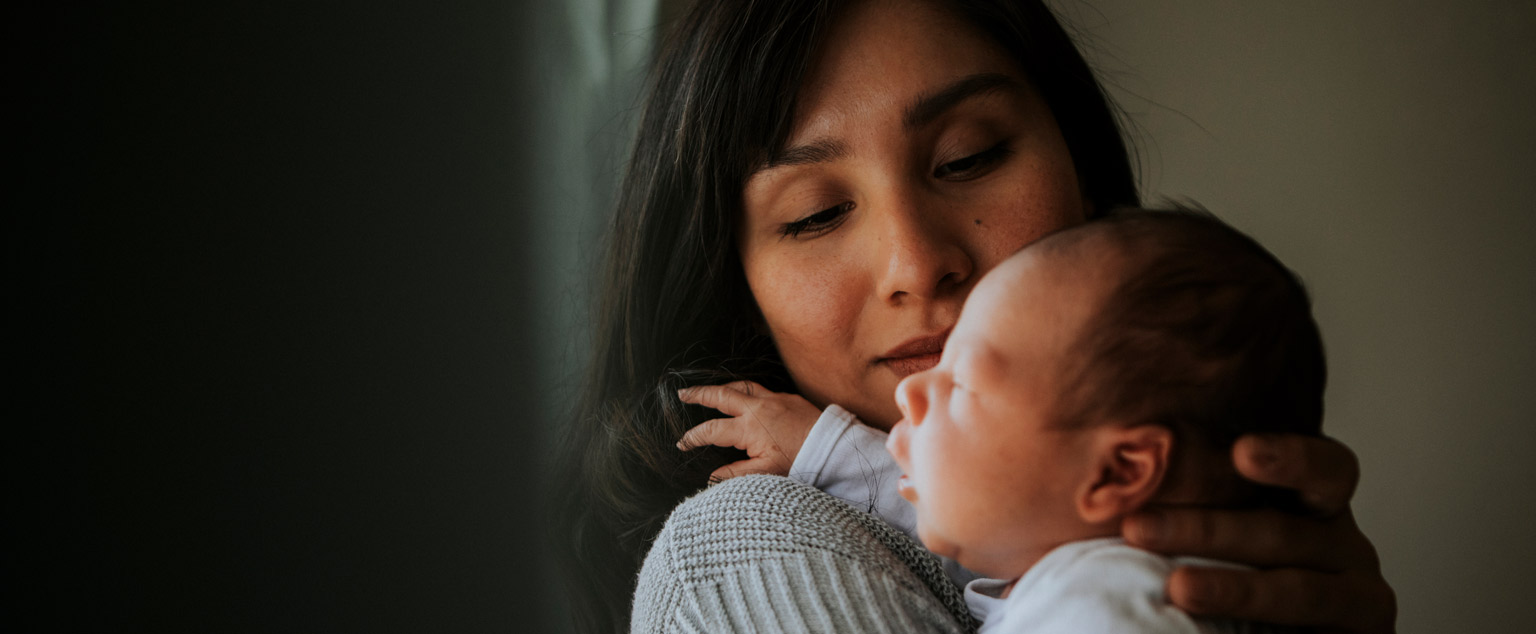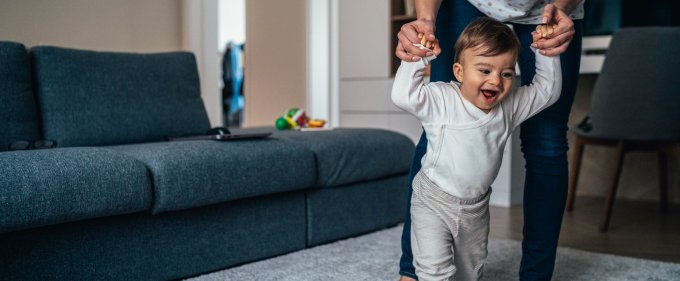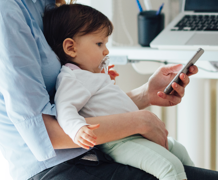Baby Blues vs Postnatal Depression - What's the Difference?
Amanda explains the difference between these two postnatal conditions and what symptoms to look out for...

As mere mortals we apparently need to idealise when we go through massive life transitions like childbirth, hence the plethora of perfect images around mothers and newborn babies that we see in magazines, blogs and throughout social media. This idealisation helps us to manage what might otherwise be too overwhelming an experience.
There is also an ever-growing acceptance that it's ok to talk about mental health but somehow this jars when it comes to early parenthood. It's supposed to be amazing & life-affirming - isn't it?
Baby Blues
The first shock can come just a few days in when the combination of lack of sleep, hormonal swings and a baby deciding it is very, very hungry leads to a coming down to earth with a thud ... think a post-holiday low with bells on and crying a river. I have read stats that suggest up to 80% of women suffer the baby blues - as it's often referred to.
If you're going through the baby blues, you might feel:
- emotional, irrational, or overwhelmed
- tearful (without knowing why)
- irritable and moody
- down or anxious.
Symptoms might upset you at the time, but they are relatively mild and will usually pass within 10 to 14 days. If they hang around or become more severe, they could be signs of more serious postnatal illness. You should speak to your GP or health visitor about getting some help and support if that is the case.
Postnatal Depression
This is a different beast. Any type of mental ill health that occurs in the first year after birth is given this label. Postnatal illness is perhaps a more helpful description as this could manifest itself as anxiety or even mania. It is surprisingly common - with approximately 1 in 7 women and 1 in 10 men being affected.
Postnatal depression can start any time in the first year after giving birth. Many women do not realise they have postnatal depression, because it can develop gradually. It often creeps up, rather than coming on suddenly and, contrary to popular belief, is rarely linked to hormones at all in women. The biggest triggers are isolation and fatigue and for men, in particular, a response to navigating what is an all too often unacknowledged huge life transition.
Signs that you or someone you know might be depressed include:
- a persistent feeling of sadness and low mood, lack of enjoyment and loss of interest in the wider world
- lack of energy and feeling tired all the time
- trouble sleeping at night and feeling sleepy during the day
- difficulty bonding with your baby
- withdrawing from contact with other people
- problems concentrating and making decisions
- frightening thoughts - for example, about hurting your baby
Speak to your GP, midwife, or health visitor about getting help and support. Many midwives and health visitors have been trained to recognise postnatal depression and have techniques that can help.
Isolation: The Importance of Talking
It is extremely important that isolation is avoided and for any new parent to link up with others in the community. It has been proven that meeting up with other parents once a week significantly reduces the chances of becoming depressed, as by talking to others we can 'normalise' the challenges of new parenting and this helps.
It's not even a 'modern day Costa thing'... it is part of our DNA that we should seek others for support at this time. Think the opposite of fight-flight, it's more like hunker-down and huddle. After all, there's support and safety in numbers. The modern part hasn't helped in that family support networks are less likely to be present or local.
To dig a bit deeper, there is also some significant psychological processing (often subconscious) that we do around the time of birth, and this may throw up unresolved past issues. All of this can be the perfect storm when it comes to tipping the balance of mental wellness.
How do I Know When to Seek Help?
It is not difficult to google the symptoms of postnatal depression but the most helpful two questions to ask are:
- Over a period of a few weeks... am I having more bad days than good?
- And am I not enjoying things I would normally enjoy?
If the answer to either or both of these questions is yes, it is time to visit the GP who is likely to suggest a combination of talking therapy and a short course of antidepressants. (These are the NICE guidelines). Exercise can also help hugely. The good news is that it is treatable but by its very nature depression can be an isolating affair as shame and a feeling of simply failing can be a common thread. So not forgetting that having a baby can be the most wonderful experience, the key message is to keep talking.
It doesn't matter who to... your partner if you have one, friends, colleagues, health professionals or even online forums. Share and be honest about your struggles or worries.
Almost certainly there will be others that are experiencing similar difficulties. Talking may be as a preventative effort to stay sane or as an honest reaching out. It doesn't matter. In any event, this is the key.
Baby Blues vs Postnatal Depression
| Baby Blues Timing:
Symptoms:
Treatment: If it doesn't resolve in within a couple of weeks or gets worse then it's time to go to a doctor. |
| Postnatal Depression Timing:
Symptoms:
Treatment: Milder cases of postnatal depression are often helped with counselling. More severe depression may be treated with a combination of talking therapy and antidepressants. |

Parental Leave Toolkit
Your parental leave plan
A simple way to manage your leave and return, at work and at home. Create a managed plan, or browse all the resources available.
Access Leave Plan











